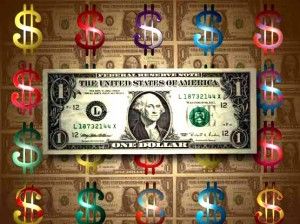Monday

Econ Monday
Long-time readers may recall that I blogged once a week on economic matters ("Econ Saturday"), in the wake of the 2008 meltdown. I stopped for a couple of reasons: I grew tired of it, my attention floated to other matters (Nockian studies, now Bellocian studies), a concerted effort to avoid the mental topic of money.
But perhaps the biggest reason of all: the naysayers I read were simply wrong.
Although I did not keep detailed notes about who said what, the general consensus in 2009 was that the economy would really, really, really bottom out in 2010. When that obviously wasn't occurring, I kept reading the pessimists and made a few mental notes. The one mental note I made was this: the economy will probably completely collapse in 2011. Maybe not until 2012. And no matter what, 2013 would see Armageddon, either because the collapse hit earlier and we'd be in the midst of it in 2013 or because it would hit in 2013.
2013=collapse. 2013=the end. 2013=rioting. 2013=Great Depression x 10.
From what I saw, the pessimists were pretty much unanimous about two thousand and hell-bound thirteen. They, of course, left themselves some wiggle room ("these things are difficult to time"), but that's what 2013 was for: they were calling for a collapse earlier, with 2013 as their fail safe in case the collapse didn't occur when they predicted.
Of this, I'm certain. I jotted down a few notes, I memorized it: 2013, 2013, 2013.
I don't know what you saw, but I didn't see a collapse in 2013. In fact, I've never been busier at the office, and my corporate clients are doing very well, with real profits. The stock market is doing very well. Mass inflation hasn't hit.
Are there problems? Heck yes, and I'm not convinced economic Armageddon isn't right around the corner. But here's the thing: nobody knows if it is. When Yellen tells you everything will be fine, you need to ignore her. When Peter Schiff tells you everything is set to collapse, you need to ignore him. But you need to invest like both of them will be right. Of that, I am now convinced.
How do you do it? I'm not qualified to give financial advice, so I'm not going to do so. I got rid of excess metals and paid down debt. I bought mining stocks. I have a bank of seeds and garden infrastructure (serious money in that compost heap!). If you want to know more, feel free to email me.
In the meantime, I have continued to glance through the pessimists' writings, mostly because Lew Rockwell (which I greatly enjoy) links to them. I find some pretty funny stuff, like this passage from a weekend posting ("the collapse will be terrifying"):
I note that Walmart, with its slipping sales, is now being called “too expensive for the middle class.” This tells us something about the struggles of the middle class, which are now exiting Walmart . . .
I saw that and I chuckled. If the middle classes aren't going to Walmart, it's because they're tired of walking around with the white trash. I hate going to Walmart. It's depressing to know all those people live in my community. I'm painfully aware that this seems hardly charitable, and I apologize for that, but facts is facts: Walmart attracts a bizarre mix from the lowest classes. What are they doing there, if not shopping? And if the low-income folks can afford to shop at Walmart, why can't the middle class folks?
Someone once said that he opposes reading because it makes people think they know more than they do. He phrased it more cleverly than that (in a paradoxical way), but his point was simple: Reading doesn't give people experience of what actually is, whether it's a mystical experience or playing with children.
Or shopping at Walmart.
That writer at Lew Rockwell may have read that Walmart is now too expensive for the middle classes, but he clearly hasn't experienced a Walmart recently.
And the collapse may, indeed, be "terrifying." But he doesn't know that and he hasn't experienced that. Like the rest of us, he's merely guessing.
